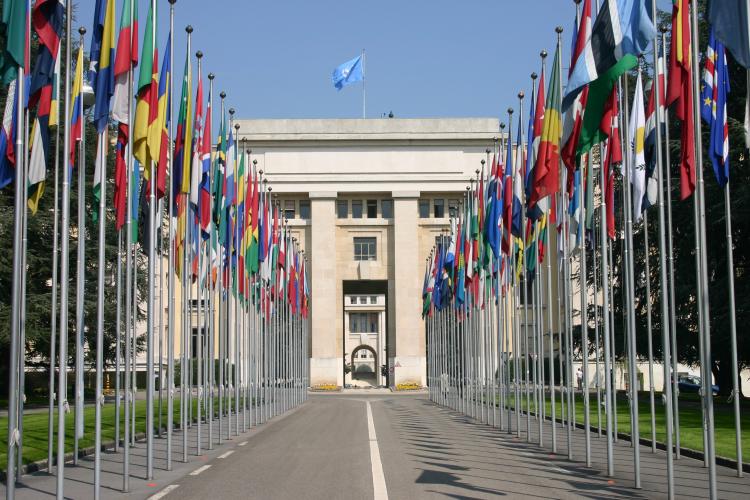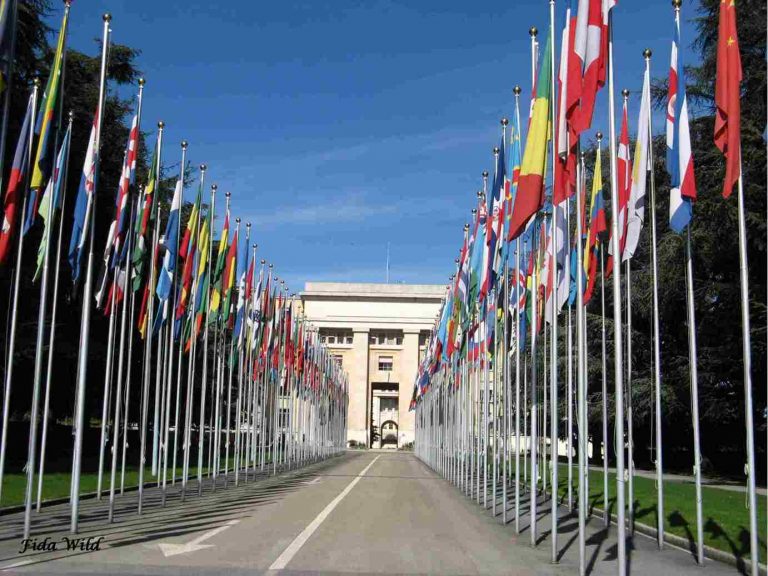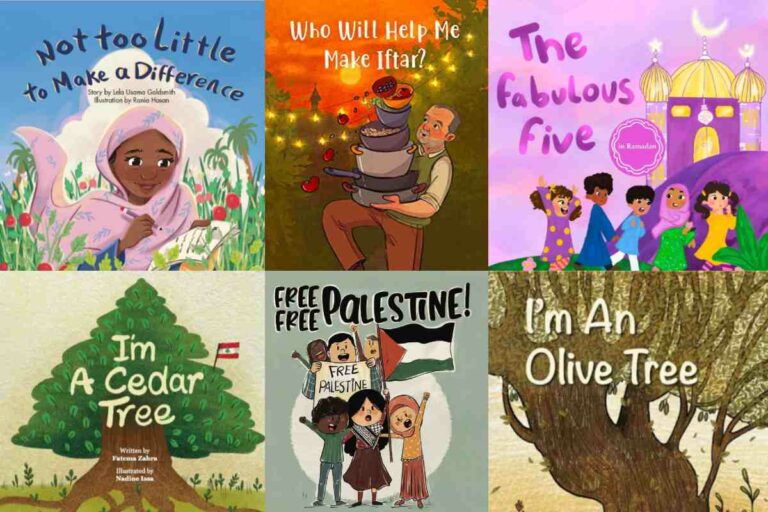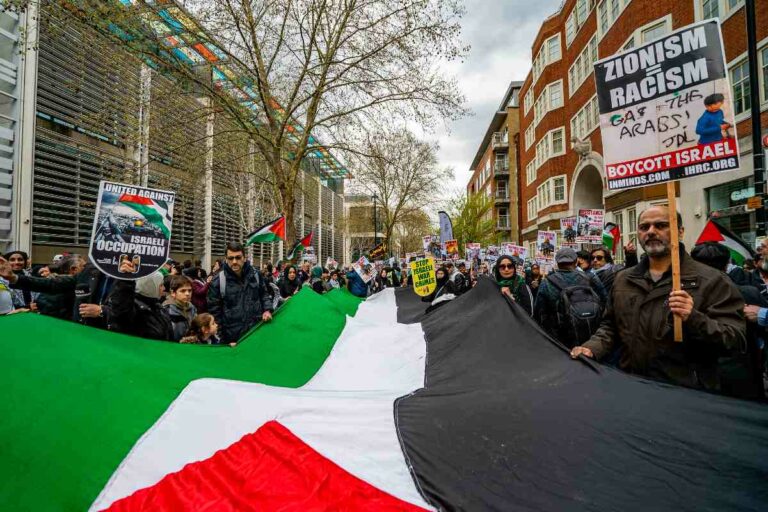On August 5, 1962, Nelson Mandela was arrested by the South African apartheid government near Howick, KwaZulu-Natal. At the time, he was operating in secret, having gone underground after the banning of the African National Congress (ANC). Mandela had been travelling under a false identity and had just returned from a trip to other African countries and the UK, where he sought support for the anti-apartheid struggle. He was arrested largely due to intelligence shared by the CIA with South African authorities, who saw Mandela as a threat to Western-aligned stability during the Cold War. Mandela was a rising symbol of resistance against apartheid. His arrest aimed to cripple the ANC and suppress growing resistance movements.
He was sentenced to 5 years in prison in 1962. Later, in 1964, during the Rivonia Trial, he and others were sentenced to life imprisonment for plotting to overthrow the government. He spent 27 years in prison, mostly on Robben Island. Instead of weakening the movement, Mandela’s imprisonment elevated him as a global symbol of resistance, justice, and moral leadership, drawing massive international attention to the apartheid system. The events that followed—international pressure, internal resistance, and political negotiation—culminated in the dismantling of one of the most institutionalized systems of racial segregation in modern history.
Although apartheid officially ended in South Africa in 1994, similar systems of racial, ethnic, or religious segregation and oppression persist in other parts of the world today. These situations often share core features of apartheid—such as systematic discrimination, segregation, denial of rights, and state-enforced inequality—even if they differ in context and structure.
Myanmar:
The Rohingya are a Muslim minority group in Myanmar (Burma), mainly living in Rakhine State. The Myanmar government does not recognize them as citizens, rendering them effectively stateless under the 1982 Citizenship Law. They face severe movement restrictions, limited access to healthcare, education, and employment, and are confined to segregated areas or camps. Like apartheid South Africa, the Rohingya are segregated from the rest of the population, both socially and geographically. The government uses legal systems to enforce this separation and to deny rights—much like South Africa’s pass laws and “homelands.” International bodies such as the United Nations have described Myanmar’s treatment of the Rohingya as having “apartheid-like conditions.”
Palestine:
Israel has maintained military occupation of the West Bank, Gaza, and East Jerusalem since 1967. Palestinians in the occupied territories live under military law, while Israeli settlers live under Israeli civil law, despite living in the same area. The movement of Palestinians is tightly controlled through checkpoints, the separation wall, and a permit system. Human rights organizations such as Amnesty International, Human Rights Watch, and B’Tselem have described the situation as a form of apartheid, citing: Separate legal systems for two populations. Discriminatory policies in housing, land use, and mobility. The intention to maintain Jewish Israeli dominance over Palestinians.
The end of apartheid in South Africa was a landmark victory for justice, but it did not end the global problem of institutionalized oppression and segregation. In places like Myanmar and the occupied Palestinian territories, apartheid-like systems persist—highlighting the ongoing struggle for human rights and equality around the world. Recognizing these parallels is important not just for historical understanding, but for global accountability and action today.
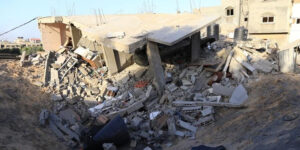 Palestine Appeal – Help the People of Gaza!
Palestine Appeal – Help the People of Gaza!
IHRC are working with partners who are on the ground in the Gaza Strip responding right now ensuring Gazans have access to essential needs such as food and have the medical supplies they need to cope with the unprecedented influx of casualties. Click below and support the Palestinians.
THROWBACK: ‘Divide and Ruin: The West’s Imperial Strategy in an Age of Crisis’
On October 2014, Dan Glazebrook joined us for a discussion around his book, Divide and Ruin, on what he understands to be the development and refinement of ‘western’ strategy in relation to the Global South. Click below to watch the recording of the event.
Dan Glazebrook is a political writer and journalist. He has written for The Guardian, The Independent, Counterpunch, Z magazine, the Morning Star and Al Ahram. His main subjects are international relations and the use of state violence in British domestic and foreign policy.
Below are books that are currently available at IHRC Bookshop:
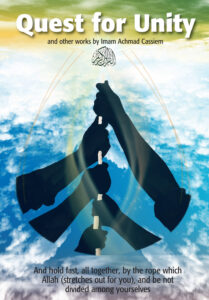 Quest for Unity – Imam Achmad Cassiem
Quest for Unity – Imam Achmad Cassiem
The Quest for Unity and other selected works by South African activist and cleric, Imam Achmad Cassiem and published by IHRC Press. Imam Cassiem is a veteran anti-apartheid activist who was imprisoned on Robben Island with Nelson Mandela for two terms, the first of which when he was only seventeen years old. An active member of the Pan African Congress, Cassiem headed Qibla, the Islamic movement that fought apartheid with the many comrades of different movements.
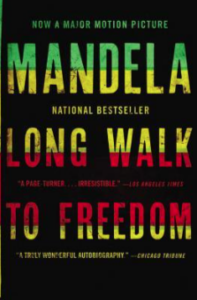 Long Walk To Freedom – Nelson Mandela
Long Walk To Freedom – Nelson Mandela
The autobiography of a man that needs no introduction. The riveting memoirs of one of the most outstanding moral and political leaders of our time. Mandela brilliantly re-creates the drama of the experiences that helped shape his destiny. Emotive, compelling and uplifting these memoirs tell the story of his hardship, resilience and eventual triumph. It also eloquently captures the political backdrop and sheds light on the socio-political reality of Apartheid.
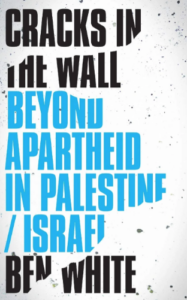 Cracks in the Wall: Beyond Apartheid in Palestine/Israel – Ben White
Cracks in the Wall: Beyond Apartheid in Palestine/Israel – Ben White
After decades of occupation and creeping annexation, the situation on the ground in Palestine/Israel can only be described as a system of apartheid. Peace efforts have failed because of one, inconvenient truth: the Israeli maximum on offer does not meet the Palestinian minimum, or the standards of international law. But while the situation on the ground is bleak, Ben White argues that there are widening cracks in Israel’s traditional pillars of support.
Opposition to Israeli policies and even critiques of Zionism are growing in Jewish communities, as well as amongst Western progressives. The election of Donald Trump has served as a catalyst for these processes, including the transformation of Israel from a partisan issue into one that divides the US establishment. Meanwhile, the Palestinian-led boycott campaign is gathering momentum, prompting a desperate backlash by Israel and its allies. With sharp analysis, Ben White says now is the time to plot a course that avoids the mistakes of the past – a way forward beyond apartheid in Palestine. The solution is not partition and ethnic separation, but equality and self-determination – for all.
Israel’s military industrial complex uses the occupied, Palestinian territories as a testing ground for weaponry and surveillance technology that they then export around the world to despots and democracies. For more than 50 years, occupation of the West Bank and Gaza has given the Israeli state invaluable experience in controlling an “enemy” population, the Palestinians. It’s here that they have perfected the architecture of control.
Best-selling journalist Antony Loewenstein, author of Disaster Capitalism, uncovers this largely hidden world in a global investigation with secret documents, revealing interviews and on-the-ground reporting. This book shows in-depth, for the first time, how Palestine has become the perfect laboratory for the Israeli military-techno complex: surveillance, home demolitions, indefinite incarceration and brutality to the hi-tech tools that drive the ‘Start-up Nation’.
From the Pegasus software that hacked Jeff Bezos’ and Jamal Khashoggi’s phones, the weapons sold to the Myanmar army that has murdered thousands of Rohingyas and drones used by the European Union to monitor refugees in the Mediterranean who are left to drown. Israel has become a global leader in spying technology and defence hardware that fuels the globe’s most brutal conflicts. As ethno-nationalism grows in the 21st century, Israel has built the ultimate model.
Historian Colin Bundy presents this biography of Thabo Mbeki’s father Govan, core leader of the African National Congress, Communist Party and armed wing of the ANC during Apartheid. A distinguished intellectual writer, activist and political theorist Mbeki was jailed alongsde Nelson Mandela in 1964 at Robben Island. Detailing his early activism, incarceration and the growing tension between himself and the other anti-apartheid leaders.
This biography goes beyond the narrative details of his life, as it also analyses his thinking as demonstrated in his political writings over a span of 50 years. Also using interviews with Mbeki himself, Bundy delivers a reliable, concise yet thoroughly researched and readable reflection of one of South Africa’s key apartheid icons.
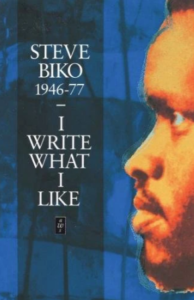 I Write What I Like – Steve Biko 1946-77
I Write What I Like – Steve Biko 1946-77
On 12th September 1977, Steve Biko was murdered in his prison cell. He was only 31, but his vision and charisma – captured in this collection of his work – had already transformed the agenda of South African politics.
This book covers the basic philosophy of black consciousness, Bantustans, African culture, the institutional church and Western involvement in apartheid.
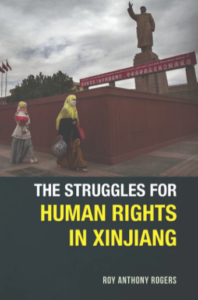 The Struggles for Human Rights in Xinjiang – Roy Anthony Rogers
The Struggles for Human Rights in Xinjiang – Roy Anthony Rogers
This book analyses the human rights conditions in Xinjiang, and also the internal and external factors that have influenced China’s policies on the human rights conditions in this region between 1978 and 2007. The human rights condition in Xinjiang have never been consistent and this book looks into these changes and the factors that have caused these changes. The people in Xinjiang have experienced a rather ‘turbulent’ journey ever since the economic reforms began in China in 1978.
It also provides some recommendations to the Chinese government, the various Uyghur diaspora groups and the United States to ensure that human rights are protected and realised for the people of Xinjiang.
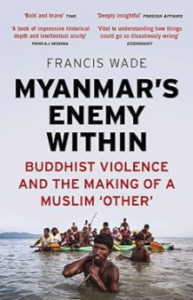 Myanmar’s Enemy Within: Buddhist Violence and the Making of a Muslim ‘Other’ – Francis Wade
Myanmar’s Enemy Within: Buddhist Violence and the Making of a Muslim ‘Other’ – Francis Wade
For decades Myanmar has been portrayed as a case of good citizen versus bad regime – men in jackboots maintaining a suffocating rule over a majority Buddhist population beholden to the ideals of non-violence and tolerance. But in recent years this narrative has been upended. In June 2012, violence between Buddhists and Muslims erupted in western Myanmar, pointing to a growing divide between religious communities that before had received little attention from the outside world. Attacks on Muslims soon spread across the country, leaving hundreds dead, entire neighbourhoods turned to rubble, and tens of thousands of Muslims confined to internment camps. This violence, breaking out amid the passage to democracy, was spurred on by monks, pro-democracy activists and even politicians.
In this gripping and deeply reported account, Francis Wade explores how the manipulation of identities by an anxious ruling elite has laid the foundations for mass violence, and how, in Myanmar’s case, some of the most respected and articulate voices for democracy have turned on the Muslim population at a time when the majority of citizens are beginning to experience freedoms unseen for half a century.
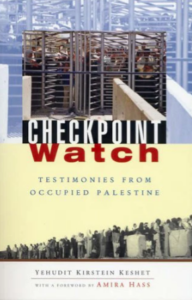 Checkpoint Watch: Testimonies From Occupied Palestine – Yehudit Kirstein Keshet
Checkpoint Watch: Testimonies From Occupied Palestine – Yehudit Kirstein Keshet
This is a critical exploration of Israel’s curfew-closure-policy in the Occupied Palestinian Territories through the eyes of CheckpointWatch, an organisation of Israeli women monitoring human rights abuses. It combines observers’ reports from checkpoints and along the Separation Wall, with information and analysis of the bureaucracy supporting the ongoing occupation. It critically reviews CheckpointWatch’s transformation from a feminist, radical protest movement and analyses Israeli media representation of the organisation and of human rights activism in general. The author contends that the dilemmas that women activists face, torn between opposition to the occupation and loyalty to the state, reflect political divisions within Israel society as a whole.
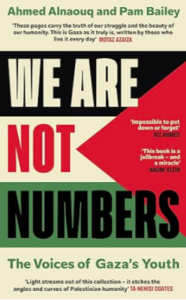 We Are Not Numbers: The Voices of Gaza’s Youth – Ahmed Alnaouq & Pam Bailey
We Are Not Numbers: The Voices of Gaza’s Youth – Ahmed Alnaouq & Pam Bailey
A teenage girl stares at her roof, hoping it won’t collapse over her head. A young student searches the Internet for photos of libraries around the world, hoping he’ll be able to visit them one day.
Another walks around the city, taking notes of all the buildings she dreams of repairing. These are the stories of young people from Gaza, born under Israeli occupation and blockade. They are people who have endured unspeakable struggles and losses, who keep fighting to be recognised not as numbers, but as human beings with hopes, dreams and lives worth living.
We Are Not Numbers was founded in 2014 to give voice to the youth of Gaza. In this collection, vital, urgent and full of heart, spanning over ten years to the present moment, we gain an unparalleled insight into the past, as well as the current and next generation of Palestinian leaders, artists, scientists and scholars and imagine where we might go from here.
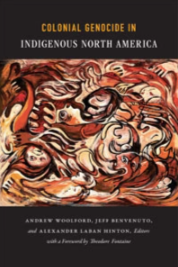 Colonial Genocide in Indigenous North America
Colonial Genocide in Indigenous North America
This important collection of essays expands the geographic, demographic, and analytic scope of the term genocide to encompass the effects of colonialism and settler colonialism in North America. Colonists made multiple and interconnected attempts to destroy Indigenous peoples as groups. The contributors examine these efforts through the lens of genocide.
Considering some of the most destructive aspects of the colonization and subsequent settlement of North America, several essays address Indigenous boarding school systems imposed by both the Canadian and U.S. governments in attempts to “civilize” or “assimilate” Indigenous children.
Contributors examine some of the most egregious assaults on Indigenous peoples and the natural environment, including massacres, land appropriation, the spread of disease, the near-extinction of the buffalo, and forced political restructuring of Indigenous communities. Assessing the record of these appalling events, the contributors maintain that North Americans must reckon with colonial and settler colonial attempts to annihilate Indigenous peoples.
Contributors include Robbie Ethridge, Tasha Hubbard, David B. MacDonald, Benjamin Madley, Colin Samson and many more.
Also available a IHRC Bookshop:
Genocide: A World History – Norman M. Naimark
Israel: Democracy or Apartheid State? – Josh Ruebner
Apartheid Israel: Israeli Practices Towards Palestinian People and the Question of Apartheid
Gordian Knot; Apartheid and the Unmaking of the Liberal Order – Ryan M. Irwin
Surviving in the Apartheid Prison: Flashbacks of an Earlier Life – Sedick Isaacs
No Bread For Mandela: Memoirs of Ahmed Kathrada, Prisoner No. 468-64 – Ahmed Kathrada
A Flawed Freedom: Rethinking Southern African Liberation – John S. Saul

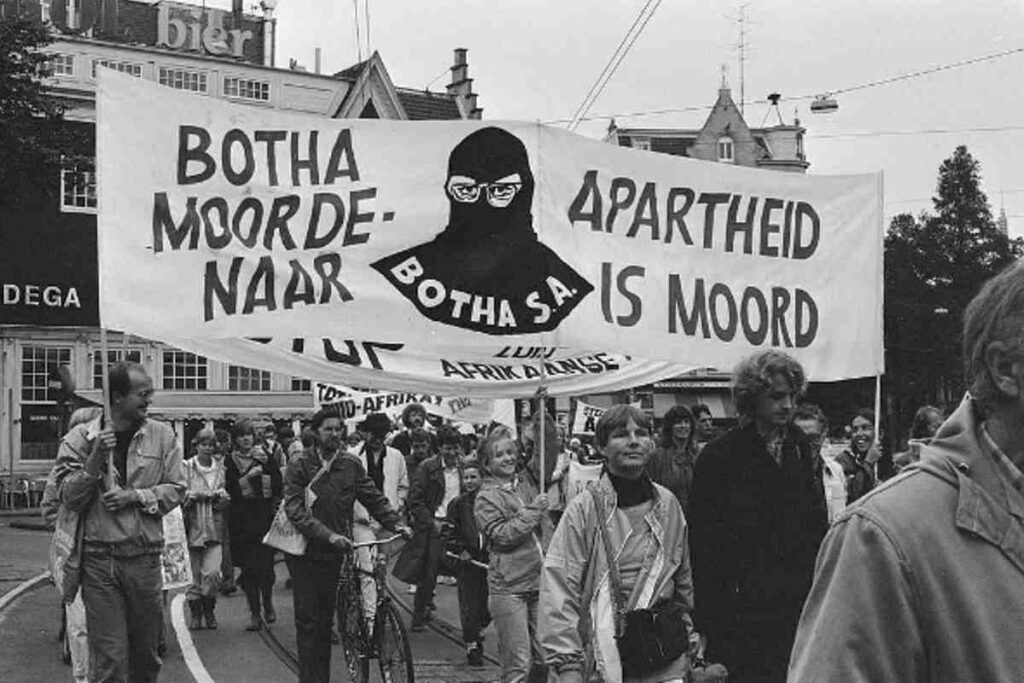
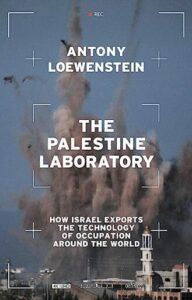 The Palestine Laboratory: How Israel Exports the Technology of Occupation Around the World – Antony Loewenstein
The Palestine Laboratory: How Israel Exports the Technology of Occupation Around the World – Antony Loewenstein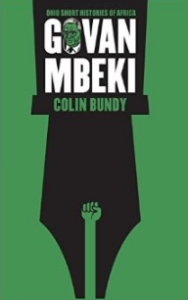 Govan Mbeki – Colin Bundy
Govan Mbeki – Colin Bundy